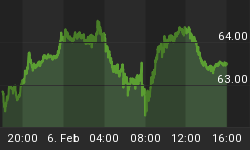It's been a while - almost a year, in fact - since we touched base with one of our favorite pointers on Euro-zone economic growth, Belgium's so-called leading indicator. The number for September was enough of a surprise that it's worth a quick re-visit.
To recap, this indicator - formally called the Belgian National Bank's Business Confidence Survey - is based on three indices that measure current patterns and future prospects in Belgian manufacturing, construction, and commerce. It's worth monitoring because of what it tells us about growth prospects in the wider Euro-zone. Belgium represents barely 4% of Euro-zone GDP, but some 75% of its own GDP is dependent on exports, and 80% of those exports go to the other eleven members of the 'zone. In addition, little Belgium specializes in making intermediate goods - things like chemicals, plastics, semi-conductors and steel, which are used as inputs for both consumer or investment goods. Any increase in demand for consumer OR investment goods will usually be preceded by an increase in the output of intermediate goods.
All of this explains why Belgium's leading indicator is so closely watched by economists - it has predicted future trends in Euro-zone GDP growth almost perfectly for the better part of a decade, with about a three-month lead.

The main index recovered steadily from a decade-low -21.5 in June 2003 into positive territory (just) in mid-2004, before sliding all the way to -12.4 in May of this year. Sure enough, Euro-zone GDP growth slowed steadily from mid-2004 onward. During the summer months, the Belgian indicator didn't seem to know whether it was about to recover or to slide anew. This month, it abruptly recovered from -10.9 in August to -5.6 in September. Most of the boost came from manufacturing, with that sector's sub-index jumping from a moribund -14.1 last month to -7.0 this month. Confidence in the sector reportedly was based on heightened activity and a strong improvement in demand. Does this mean we can expect an improvement in Euro-zone GDP in Q4?
The other indicator to watch, and the one favored especially by currency market players, is the German business climate index released monthly by the Ifo institute. The headline index measures the business climate in Germany, and is more of a coincident indicator than a leading one. More attention focuses on the sub-index that measures the business outlook for the next six months.

Germany is the Euro-zone's largest economy, accounting for almost a third of the region's overall output. So, the Ifo index, and particularly the outlook sub-index, should give a good impression oftrends for the area as a whole. Like the Belgian leading indicator, the Ifo weakened in late 2004 and early 2005, but couldn't seem to make up its mind which way it was headed in the summer months.
The September Ifo will be released on Tuesday, September 27. The ZEW research institute index of investor confidence, released earlier this week, dropped sharply to 38.6 from 50.0 in August. Obviously investors are unnerved by the inconclusive German general election, but they are also concerned over soaring oil prices and a slowdown in global growth. Are German businesses feeling similarly anxious?
If Tuesday's Ifo turns south, markets and investors will assume that the Belgian number was a one-month blip and that Q4 will be a weak one in the Euro-zone.















